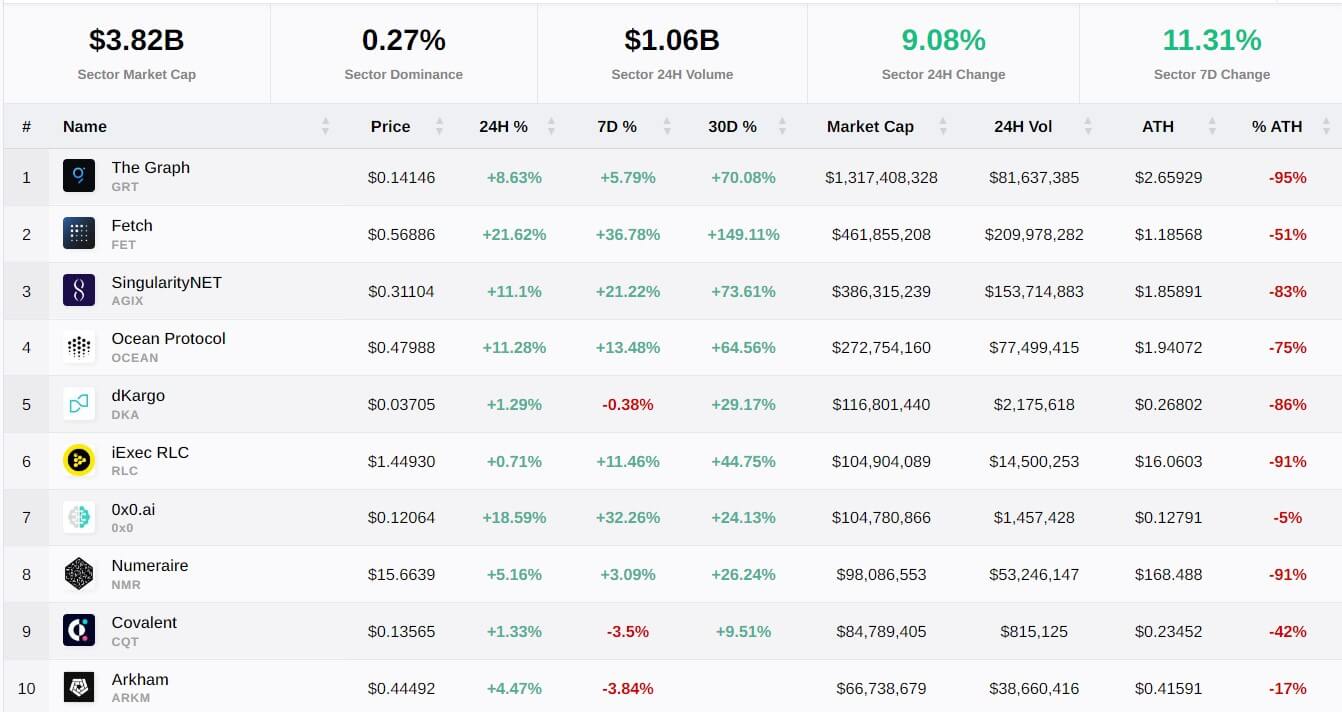VanEck subsidiary's memecoin index up 137% year-to-date
The MarketVector Meme Coin Index (MEMECOIN) surged over 137% since the beginning of 2024 as the top memecoins continue their rise.
MarketVector’s memecoin index has outperformed the S&P 500 index by over 15 times this year. By contrast, the S&P only saw a 9.3% price appreciation year-to-date (YTD), according to TradingView data.
The memecoin index is up over 137% year-to-date and 186% over the past year, trading at $76.60 as of 8:52 am UTC.

MarketVector, a subsidiary of the United States asset management giant VanEck, launched its memecoin index on October 31, 2021. It includes the six largest memecoins including Dogecoin (DOGE) at a 30.7% allocation rate, Shiba Inu (SHIB) at 28.3% allocation, 14.5% Pepe (PEPE), 12.5% Dogwifhat (WIF), 7.14% Floki Inu (FLOKI) and 6.7% Bonk (BONK) tokens.
The “high risk, high return strategy” makes memecoins attractive for investors with a speculative nature and will likely keep the top coins relevant, according to Anndy Lian intergovernmental blockchain expert and author of NFT: From Zero to Hero. Lian told Cointelegraph:
“This creates a viral effect that can lead to rapid price increases. Many investors are attracted to the potential for quick, high returns. Memecoins are known for their volatility, which can result in substantial gains for traders who time their investments right.”
Looking at the memecoin fund’s individual components, Pepe was the biggest gainer, rising 482% YTD, followed by Floki up 372%, and Shiba Inu up 112% YTD, taking the third place. Bonk was the worst performer, up over 59% YTD, but still beating the returns of the S&P 500 by over sixfold.

Memecoins often deliver exponential returns, even compared to some of the top cryptocurrencies. Compared to the memecoin index’s 137% appreciation, the top altcoins excluding the 10 largest cryptocurrencies, their market cap only rose 24% YTD.

Top altcoins experience weekly sell-off
Despite the profitable yearly returns, the six largest memecoins saw a sell-off this week, raising concerns of a potential end to the memecoin season. Over the past five days, Dogwifhat fell over 15% as the biggest loser, while Pepe fell over 5% — the smallest decline among the top memecoins.

Since memecoins hold no underlying utility, it’s difficult for traders and technical analysts to predict their price action – mainly driven by social media hype cycles for each memecoin.
Trading volume is often used to gauge sentiment around memecoins. Weekly memecoin trading volume has been declining since early March across all blockchains, as reported by Cointelegraph.
Related: Trader loses 7-figure sum due to 0L Network hard fork






